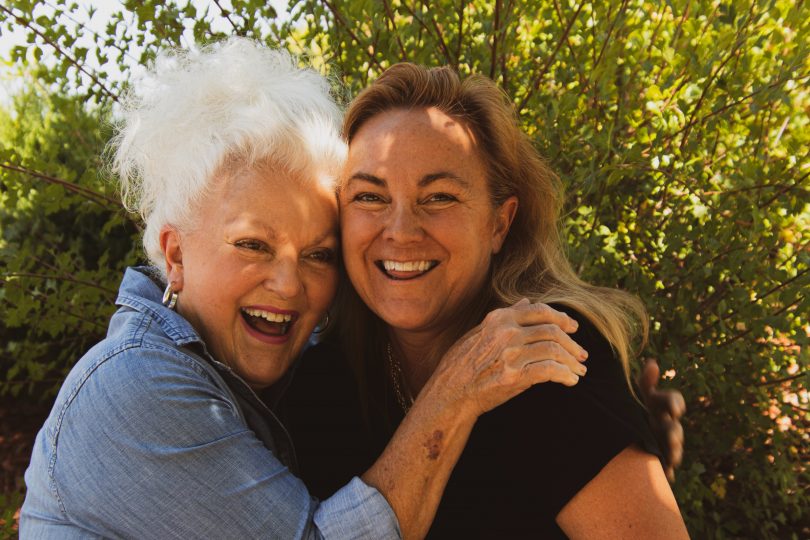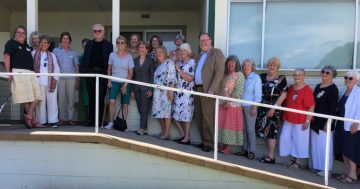
The Volunteer Dementia and Delirium Care Program was established at Bega Hospital in 2009 and has been replicated in hospitals nationally. Photo: Logan Weaver.
Dementia nurse consultant Cath Bateman often saw dementia patients distressed in a hospital, especially those whose family couldn’t visit regularly.
The only way a patient’s anxiety and fear were eased was if a staff member sat with them.
However, on a busy ward, staff didn’t always have time.
That’s when Cath and Barbara Williams from Dementia Australia came up with the idea of a volunteer-led program that ensured there was always a friendly face by a dementia patient’s bedside.
The Volunteer Dementia and Delirium Care Program was established at Bega Hospital in 2009 and has since been replicated in hospitals nationally.
The volunteers are seen as part of the care team and identified by a gold polo shirt.
Cath and Barbara found dementia patients visited by a volunteer were less lonely and distressed, less likely to need one-on-one supervision from a nurse or security guard and less likely to return to the hospital.
The families of dementia patients in the hospital also felt relieved that their loved ones weren’t alone.
Now, Cath, Annaliese Blair and Dr Katrina Anderson from the Aged Care Evaluation Unit in the Southern NSW Local Health District, have received a $591,000 grant from the Dementia Centre for Research Collaboration to expand the program into aged care facilities in the Eurobodalla Shire.
They have been applying for funding for three years and can’t wait to improve the emotional care for dementia patients outside of hospitals.
“The benefit of the program in aged care is the volunteers will have a greater chance of developing a relationship with the person. In a hospital, the volunteer may only see the patient once before they’re discharged,” said Cath.
The rollout to aged care facilities will begin with a research pilot called ‘Golden Angels’.
The funding for the research runs until June 2023 and volunteers will be involved in the study for six months.
Two facilities will recruit and train volunteers to provide care under an adapted version of the program and two similar facilities will continue with normal care to act as controls.
The residents receiving volunteer care will be compared to those in the control facilities to see if there is an improvement in levels of loneliness, depression, food and fluid intake, hospital admissions, falls, physical restraint, psychotropic medication use and quality of life.
Cath and her research team are looking for volunteers to help with the study.
Volunteers can be anyone from the community willing to give up their time to provide support and care to dementia patients.
They first take part in eight training sessions to understand dementia and how to assist patients with things such as eating, drinking, walking, communicating and therapeutic activities.
Volunteers usually provide care over a morning or afternoon shift, once a week or fortnight.
“We have quite a wide variety of volunteers and that’s the really enriching part for me. Most are women, but we did have one man, who was actually my son before he went into nursing,” said Cath.
“We had ex-nurses, but also people who worked in the public service in Canberra. We mostly found volunteers through word of mouth – people decided it was something they’d like to do.”
If you would like to volunteer contact Cath Bateman via [email protected].
















